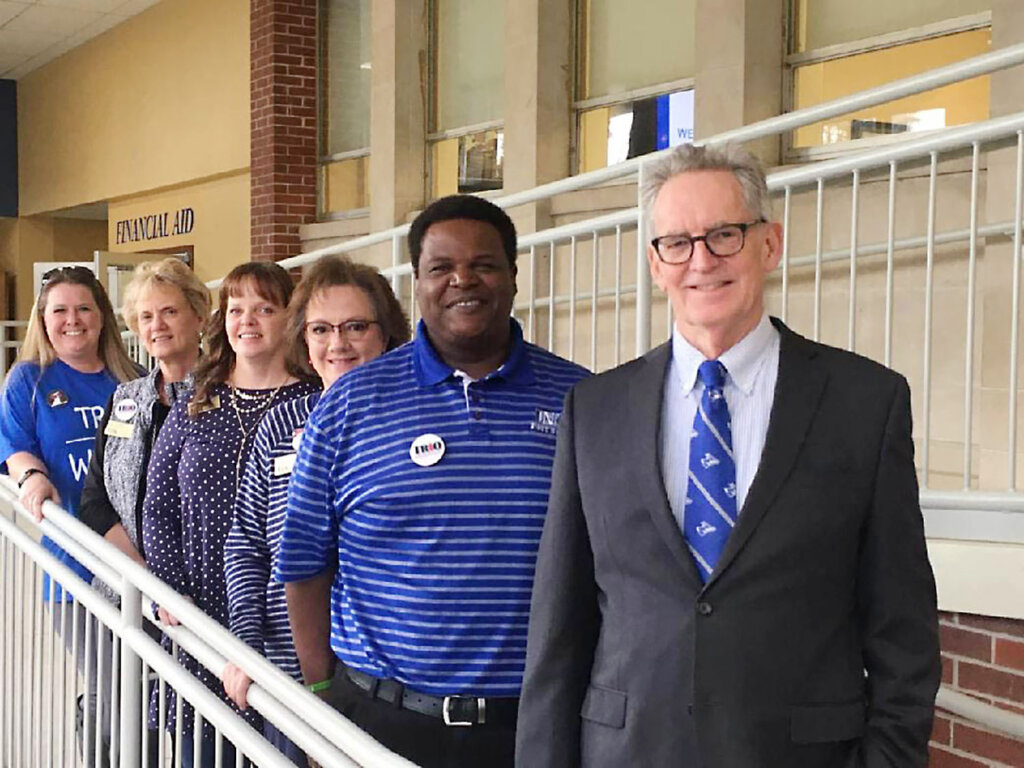KEARNEY – A University of Nebraska at Kearney program that supports students from disadvantaged backgrounds is receiving $1.7 million in federal funding to maintain these important services.
 The U.S. Department of Education awarded UNK a TRIO Student Support Services grant that provides $340,241 in annual funding over the next five years. Student Support Services is one of eight Federal TRIO Programs designed to help first-generation, low-income and disabled students build a successful and meaningful postsecondary education.
The U.S. Department of Education awarded UNK a TRIO Student Support Services grant that provides $340,241 in annual funding over the next five years. Student Support Services is one of eight Federal TRIO Programs designed to help first-generation, low-income and disabled students build a successful and meaningful postsecondary education.
“UNK is honored to receive this highly competitive federal grant and will continue to meet the needs of its students with effective programming. This award will make transformative education a reality for many more deserving students as they prepare for careers and graduate programs,” said David Luker, director of UNK’s Academic Success Offices.

TRIO Student Support Services serves as a bridge connecting students and faculty. The program’s mission is to increase retention and graduation rates by providing individualized academic support for participating students.
The federally funded program offers services such as:
- Four-year academic planning
- Success strategies and tutoring referrals
- Advising and enrollment assistance
- Financial planning and financial aid support
- Foundations for Learning, a three-credit hour transition course
- Academic and peer mentoring
- Career development opportunities
- Personal and academic counseling
- Assistance with graduate school and scholarship applications
“This grant would not have been possible without the support and efforts of many campus offices,” said Luker, who noted contributions from Sponsored Programs and Research Development, Academic Resources and Institutional Research, Admissions, Financial Aid, Finance and Student Affairs, among others.